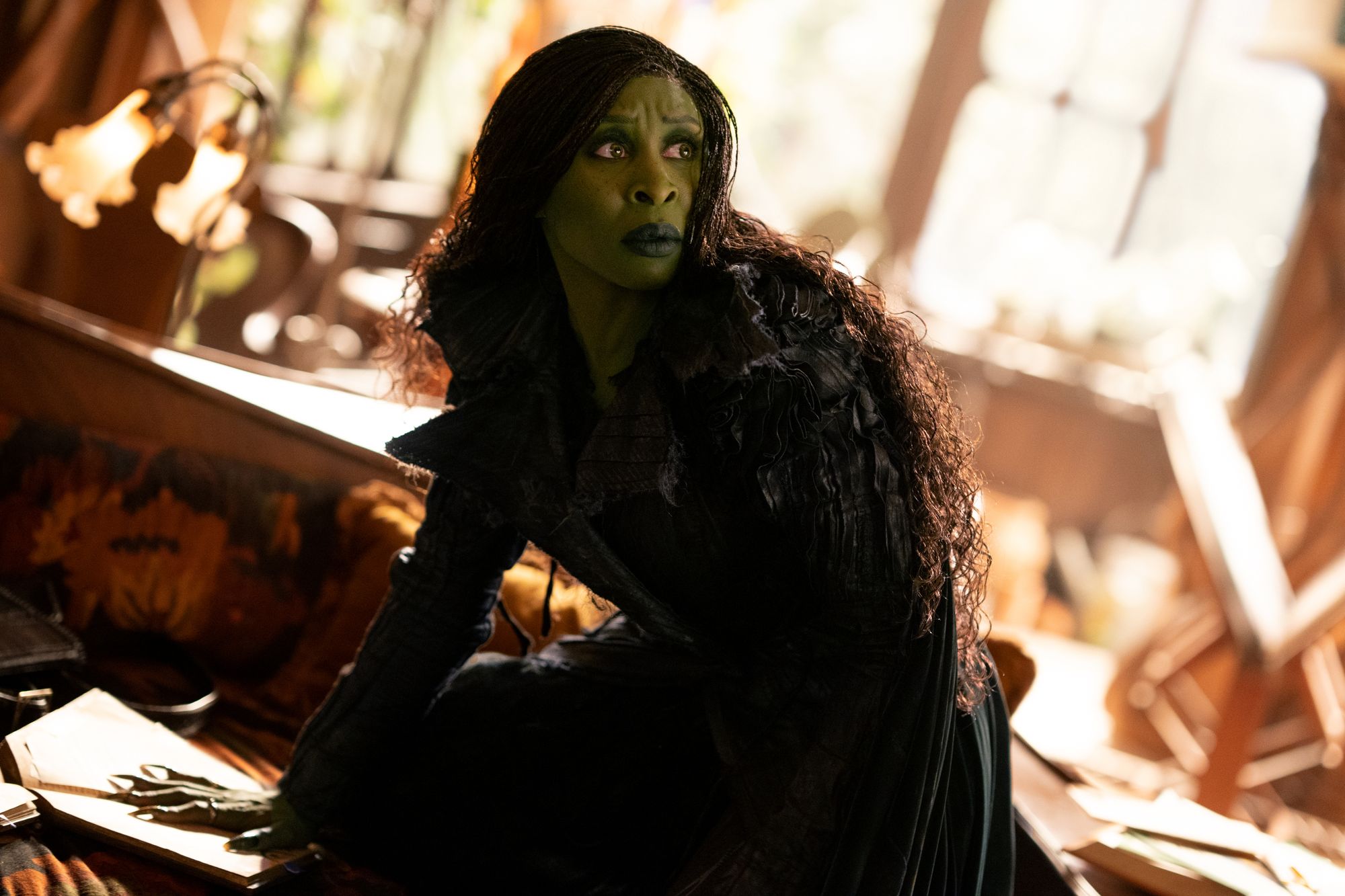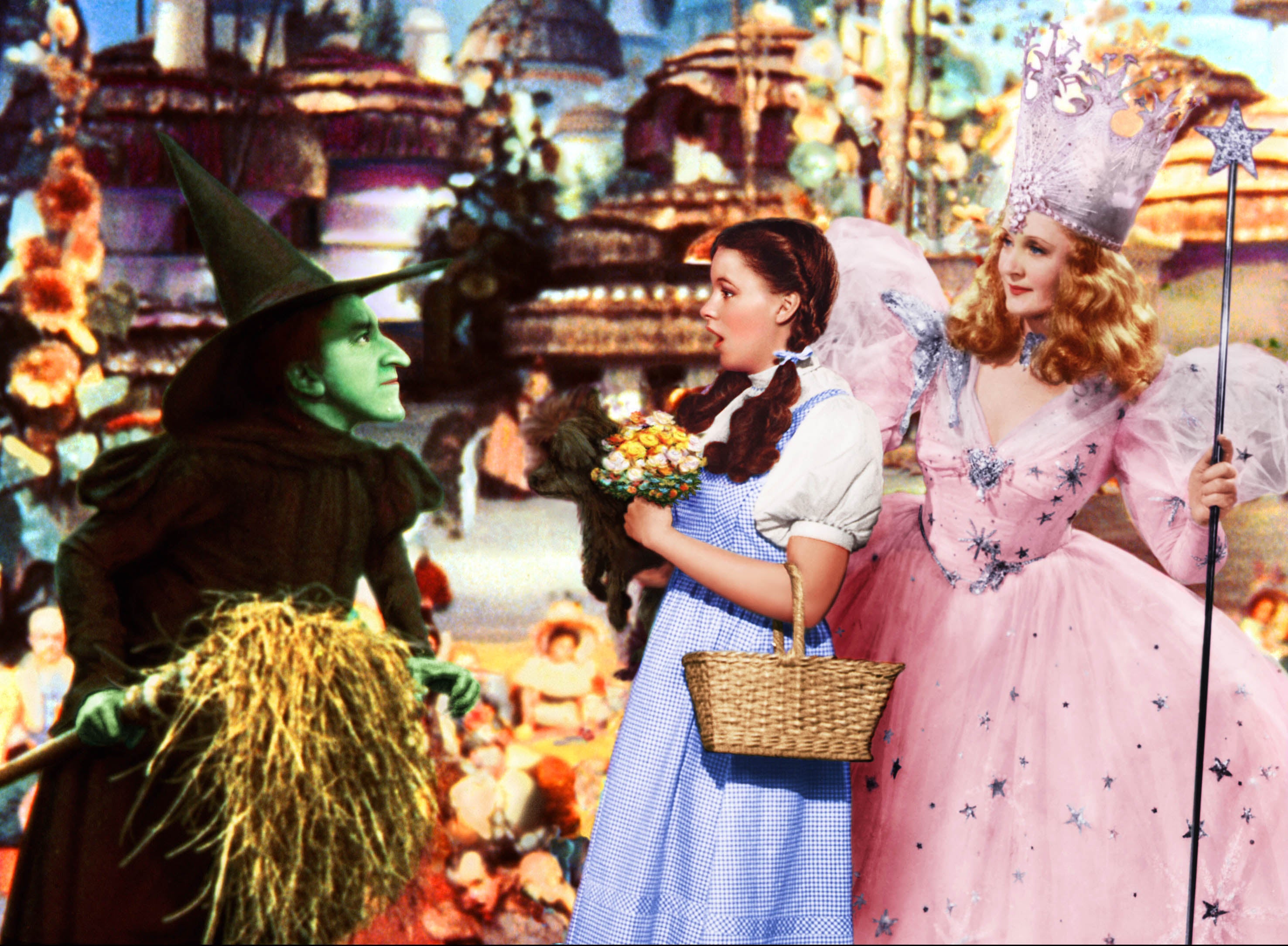- Culture
- Film
- Features
With the new musical sequel poised to dominate the box office, ‘The Wizard of Oz’ seems as popular now as it was a century ago. Micha Frazer-Carroll looks at what sets L Frank Baum’s eternal children’s classic aside from the rest
Friday 21 November 2025 06:00 GMTComments
 CloseWicked: For Good trailer
CloseWicked: For Good trailer
Get the latest entertainment news, reviews and star-studded interviews with our Independent Culture email
Get the latest entertainment news with our free Culture newsletter
Get the latest entertainment news with our free Culture newsletter
 Email*SIGN UP
Email*SIGN UPI would like to be emailed about offers, events and updates from The Independent. Read our Privacy notice
The Wizard of Oz was the first film I ever watched start to finish, around the age of two. In the years following, I would, I’m told, watch it on repeat. Metro Goldwyn-Mayer’s roaring lion, and the sepia serif title credits; a pigtailed Judy Garland holding on to a rusty hay rake; the brown house landing in Oz, its door opening to reveal Technicolor flowers and bright yellow brick: these are some of my very earliest memories. And I’m not alone. They feel primordial, universal, almost eternal.
In the 86 years since The Wizard of Oz first arrived on screens, there have been countless adaptations, spin-offs, and reimaginings. The latest of these is Jon M Chu’s Wicked: For Good. Reviews have been lukewarm, but the film, starring Ariana Grande and Cynthia Erivo, is nonetheless tipped to have the biggest-ever opening for a Broadway musical film adaptation. For Good is a Wizard of Oz adaptation in a second-cousin sort of way – the second part of a film version of a stage musical adaptation of a novel, which is arguably a spin-off of a film, which itself is the spin-off of the original book series and broadway musical. We are in Wizard of Oz-ception.
The enduring appeal of The Wizard of Oz is particularly curious in our current cinematic landscape, wherein audiences complain at fatigue at intellectual property recycling, of dismal reboot culture. Wicked comes amidst a sea of other franchises, sequels, prequels, reboots and other opportunistic attempts to cash in on nostalgia. But it also stands apart, enjoying the same sort of phenomenal popularity that The Wizard of Oz managed in the early 20th century. Why is this the case? There are many possible reasons.
American author L Frank Baum’s The Wonderful Wizard of Oz was published in 1900, at the end of the Gilded Age, after which it became one of the bestselling children’s books in America. Baum ended up expanding the Oz universe, adapting the story for Broadway and writing 14 Oz books in total. He didn’t want to keep writing Oz books, repeatedly stating in prefaces that he would turn to other fantasy stories. But each time Baum prepared to stop, he was inundated by fan letters demanding more stories about Dorothy and the Tin Woodman. Often finding himself broke due to his ambitious stage productions, Baum was drawn back to the story again and again, however begrudgingly.
The kind of “Wizard of Oz fever” that Baum encountered has reemerged several times over the course of more than a century. In 1939 came MGM’s film adaptation, which initially performed modestly at the box office, but became a sleeper hit due to constant TV broadcasts throughout the 1950s. The decades that followed saw unofficial remakes and spin-offs – including the all-Black 1970s musical adaptation The Wiz, starring Diana Ross, and Walter Murch’s unsettling 1985 film Return to Oz – which drew from other books in Baum’s series. In the 1990s, we got Gregory Maguire’s 1995 novel Wicked: The Life and Times of the Wicked Witch of the West, which in the 2000s became the stage musical Wicked.
One clue to the story’s longevity might lie in an academic study that named the 1939 Wizard of Oz as Hollywood’s most culturally significant film ever. Rather than counting the number of references to the film in popular culture, researchers counted the number of times a film was referenced more than 25 years after its release. This meant that they measured “lasting importance” rather than flash-in-the pan cultural phenomena. The Wizard of Oz was cited across large gaps in time, with references and adaptations being staggered throughout the 20th century.
It’s significant, too, that there has never been a straight remake of the 1939 film; adaptations of the story, which have been spread across the decades, often explore completely different parts of the expansive Oz universe, or reimagine them completely. The Wiz, for example, reimagines the geographically vague city as a New York fever dream, while Wicked focuses on characters outside of the original movie’s core gang. Oz: The Great and Powerful, directed by Spider-Man’s Sam Raimi, was a prequel, casting James Franco as the charlatan wizard-to-be.
 open image in galleryCynthia Erivo in ‘Wicked: For Good’ (Universal)
open image in galleryCynthia Erivo in ‘Wicked: For Good’ (Universal)Perhaps the reason The Wizard of Oz has lent itself to such a huge range of adaptations is because of the universality and flexibility of its themes. The story’s structure mirrors old fairytales, with recognisable archetypes such as the innocent traveller (Dorothy), the frightening witch (Elphaba), and the false authority (the Wizard). In Baum’s original novels, Glinda was one of the first popular presentations of a “good witch”, seemingly inspired by Baum’s suffragist mother’s academic interest in the historical persecution of women through witch trials.
The timelessness of the story also makes it malleable when it comes to political allegory. Characters like the Tin Man and Scarecrow were widely interpreted in the original novel as referencing tensions between agricultural workers and factory owners during the dawn of the industrial revolution, which Baum lived through. Throughout the 20th century, others interpreted the story as being chock full of references to queerness (including, for instance, the overarching journey from one’s family farm to a colourful and sparkly city full of flamboyant inhabitants).

Watch Apple TV+ free for 7 day
New subscribers only. £9.99/mo. after free trial. Plan auto-renews until cancelled.
Try for freeADVERTISEMENT. If you sign up to this service we will earn commission. This revenue helps to fund journalism across The Independent.

Watch Apple TV+ free for 7 day
New subscribers only. £9.99/mo. after free trial. Plan auto-renews until cancelled.
Try for freeADVERTISEMENT. If you sign up to this service we will earn commission. This revenue helps to fund journalism across The Independent.
 open image in galleryMargaret Hamilton, Judy Garland and Billie Burke in ‘The Wizard of Oz’ (Warner Bros)
open image in galleryMargaret Hamilton, Judy Garland and Billie Burke in ‘The Wizard of Oz’ (Warner Bros)Wicked, meanwhile, is read as an allegory for the rise of fascism, with an oppressed animal class fighting against widespread persecution. It’s not insignificant that Wicked emerged as a Broadway sensation during the Iraq War – its story of confected villains, propaganda and establishment untruths was as germane to the Bush era as the Wicked film adaptations seem to our current time.
Though reboots and franchise films are often framed as a safe financial bet for studios, the truth is that they are not. In reality, they sometimes perform very poorly– increasingly so, as “franchise fatigue” has set in – and are far more likely to be panned by critics. Oz, though, has such enduring appeal because its building blocks are timeless. I may regret saying this, but just as I would watch it on repeat as a child, I’m convinced I could see adaptation after adaptation of this story, and never tire of it.
‘Wicked: For Good’ is in cinemas now
More about
The Wizard of OzJoin our commenting forum
Join thought-provoking conversations, follow other Independent readers and see their replies
Comments


